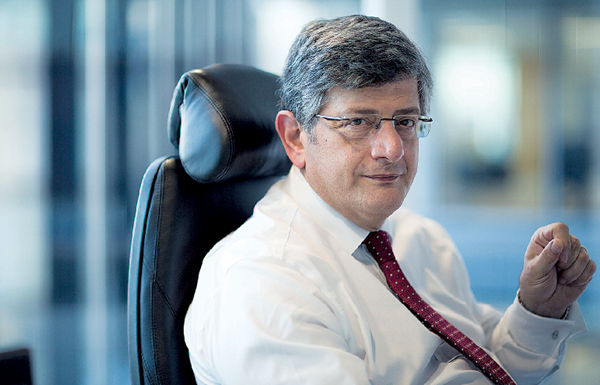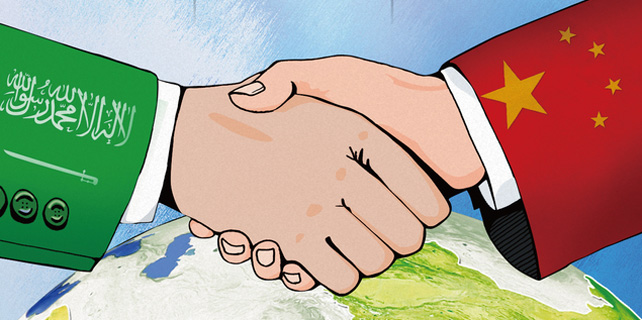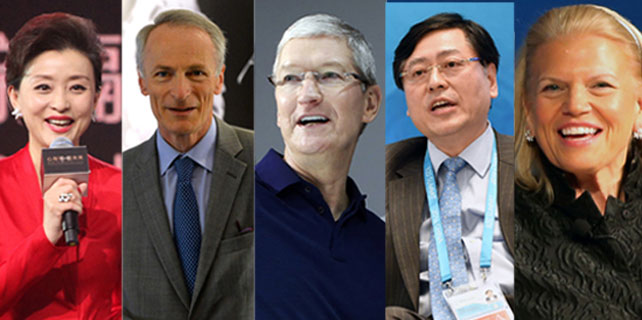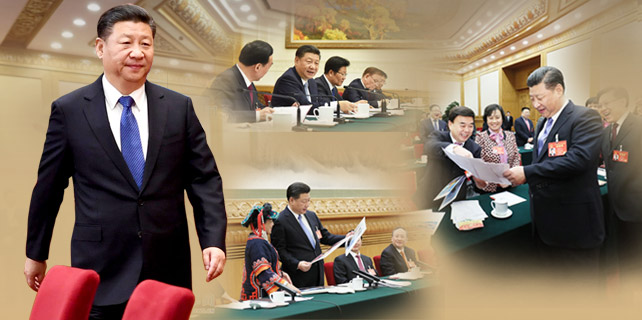A whole new world of trade
 |
|
Harry Theochari says the Belt and Road Initiative is possibly the largest transport infrastructure program in modern times. Provided to China Daily |
The world's transport industry hopes China's immense international infrastructure project, the Belt and Road Initiative, will provide much-needed impetus for sustainable economic growth and increased free trade, says Harry Theochari, global head of transport at the London-based law firm Norton Rose Fulbright.
"The Belt and Road Initiative is possibly the largest and most exciting transport and infrastructure program in modern times. The movement of raw materials and the scale of the engineering that will have to be undertaken, will be greater than anything previously witnessed," he says.
Theochari spoke from his office overlooking the gently flowing waters of the Thames, the river that once connected London to its trading partners.
Ships no longer travel into London, instead stopping at modern ports in Essex and elsewhere, but London remains the heart of the maritime services industry, which hopes that British ports can also play a crucial role in the Belt and Road Initiative, improving Britain's connections with China and Asia as it leaves the European Union.
Theochari is now working toward this vision, in his capacity as vice-chairman of Maritime London, which looks after the city's maritime services players such as law firms, insurance companies and ship-brokerages.
"Engaging with China is crucial for the UK to protect its centuries-old maritime sector and continue to play a global role," he says, adding that great synergy can be achieved between China's development as a leading shipowner and shipbuilder and the UK's maritime financial services.
London's maritime service industry, which was once the heart of the British Empire, still contributes $5.35 billion to the UK economy and directly supports the employment of about 10,000 to 11,000 people, according to Pricewaterhouse Coopers.
The Belt and Road Initiative, which was launched by President Xi Jinping three years ago to boost trade and infrastructure through investment, is now gaining momentum after receiving support from more than 100 countries and international organizations. So far, Chinese companies have invested more than $50 billion in projects in those countries.
In May, China will host the Belt and Road Forum for International Cooperation in Beijing to discuss international collaboration potential. British Prime Minister Theresa May is invited to attend.
In Theochari's view, the Belt and Road Initiative's power is its coordination of efforts to build transport infrastructure and the creation of a logistics chain of roads, railways and ports, which will significantly reduce trade costs and increase efficiency.
"This initiative is made possible because of China's political will, economic power and willingness to take a leadership role in this fundamentally important area of world trade. In the past, the tendency would be to focus on moving goods or raw materials within sovereign borders or political groupings to an export or import point. The planning was very local in nature," Theochari says.
"The initiative looks to create a global logistics chain with trade routes being planned across continents and oceans. These logistic chains, from point of origin to point of delivery, will play a key role in reducing the costs and increasing the efficiency and sustainability of global trade."
In addition to boosting trade growth, the Belt and Road Initiative will also be instrumental in championing free trade, a message highlighted in President Xi's speech at the World Economic Forum in Davos, Switzerland, in January.
"It is clear from President Xi's speech at Davos that China has every intention of continuing to increase its trade with the rest of the world. Enhanced trade links will help fast-growing countries like Malaysia and Indonesia, with young, ambitious and growing populations, to develop even faster," Theochari says.
Some projects in Belt and Road countries are already built and in operation. In 2016, China Railway Tunnel Group completed the Qamchiq Tunnel in Uzbekistan, the longest tunnel in Central Asia. It is part of the 169 kilometer Angren-Pap railway line, which improves Uzbekistan's infrastructure and enhances China's links with Central Asia.
Meanwhile, the China-Belarus industrial park is in development, and work on the Hungary-Serbia railroad is to begin soon. Cooperation between China and Central and Eastern European countries has been further expanded.
China's leadership in realizing global free trade is backed by concrete action. For instance, in November last year President Xi called for the building of a Free Trade Area of the Asia-Pacific at the APEC CEO Summit in Peru.
Meanwhile, the China-led Asian Infrastructure Investment Bank is gaining momentum in leading a new method for multinational development bank operations. Established just over a year ago with 57 founding shareholders — in spite of opposition from the US — the AIIB has already approved a lending program of $1.73 billion, and invested in nine projects across Europe, Asia and the Middle East.
In addition to the AIIB's financing capacity and global support, Theochari says the bank's corporate governance structure is unique: "Its international advisory panel consists of notable figures, a number of whom have held political power and who not only understand trade but how the international political landscape works in practice."
The AIIB's international advisory panel includes Anders Borg, former finance minister of Sweden, and Lord Nicholas Stern, a professor at the London School of Economics and former chief economist at the World Bank.
Theochari also praises the long-term sustainability focus of the AIIB, which is coherent with its motto of "lean, clean and green". For him, one demonstration of this sustainability mindset is the bank's ability to help developing countries along the trade route to truly grow.
"Its commitment to investing in projects such as rural infrastructure, sanitation and environmental protection, could contribute significantly toward generating wealth through well-planned infrastructure," he says.
The AIIB has already launched projects to improve sanitation in Indonesia, upgrade Bangladesh's electricity grid and build highways in Pakistan and Tajikistan.
Theochari, who was born into a poor Greek Cypriot family that emigrated to the UK in the early 1960s, started a career in shipping law as "a natural choice". Greece had a major shipping fleet and he spoke the language of the Greek shipowners. In 1985, he joined Norton Rose Fulbright, and in 1987 he visited Pudong district in Shanghai.
"It was my first time in China and all I could see were fields and a few pigs. I pinch myself now when I go to Shanghai and see this magnificent new city, with world-class architecture and built in almost no time," he says.
Over the three decades of Theochari's career in shipping law, he not only has witnessed China's dramatic transformation but also the tremendous international strength accumulated by Chinese transport companies overseas, especially in the years following the financial crisis.
In 2014, three out of 15 of the world's largest shipping lenders were Chinese banks, together providing $45.3 billion of global shipping market finance — just under 20 percent of the $258 billion total shipping finance debt of the top 15 lenders' combined. Before 2008, no Chinese banks were among the global top 15 shipping lenders.
Theochari says all such developments further enhance the organization of China's infrastructure leadership capacity, and the strength of the Belt and Road Initiative.
"Having witnessed China's change over the past 30 years, it is exciting to see the way China is now championing the Belt and Road Initiative, the success of which I believe will match China's significant achievements over the past few decades," he says.
















